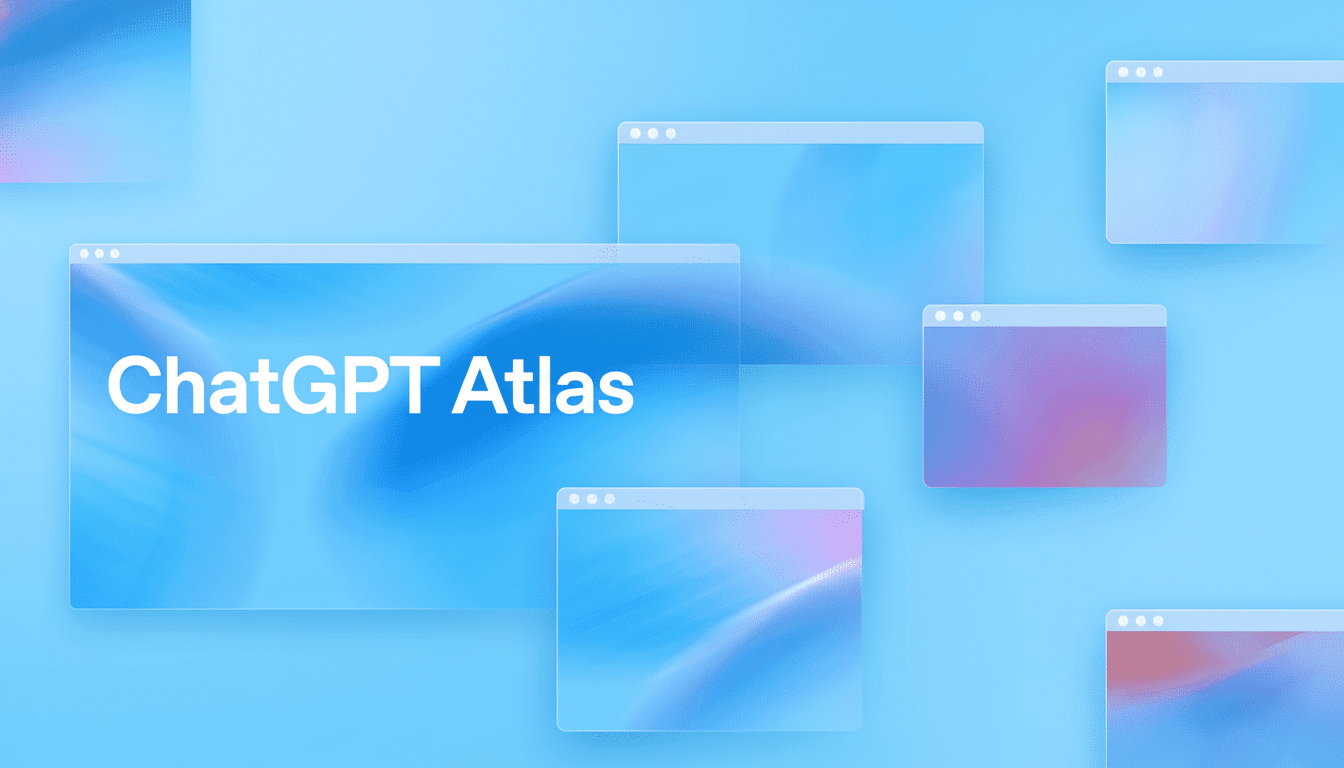OpenAI has unveiled ChatGPT Atlas, an AI-first web browser that integrates ChatGPT directly into the browsing experience. The app launches on macOS, rolling out worldwide to free, Plus, Pro and Go users with the pitch that your AI assistant now lives inside every page, as opposed to a separate tab.
An AI browser built for workflow and in-page assistance
Atlas is designed to reduce the space between what you want to do and getting it done. Begin with an omnibar that saves natural language questions or URLs, then pull up an “Ask ChatGPT” sidebar on any tab whenever you need help drafting, summarizing or troubleshooting. It helps to highlight some text in an email or doc, and Atlas suggests edits in context without you hopping between apps.
- An AI browser built for workflow and in-page assistance
- “Agent mode” with explicit browser safety guardrails
- Family controls and readiness to take on enterprise
- How to try Atlas on Mac and get started quickly
- Where Atlas fits in the browser wars and competition
- What’s next for Atlas on Windows, iOS and Android

Atlas stands as an exception to traditional browsers inserting AI as a plugin: In the industry, there is not a single browser embedding behaviors persisted through memory. It remembers what you looked at or worked on previously, and it marries that context to your identity. You control what the assistant sees: Limit it to certain sites, wipe specific pages or nuke your entire history. There’s also Atlas Incognito: It logs you out of ChatGPT to compartmentalize sessions.
OpenAI teased the experience with a brief demo posted to its website and X, showing how the assistant shadows typical browsing functions — searching, drafting replies and cleaning up text — without the copy-paste shuffle.
“Agent mode” with explicit browser safety guardrails
Atlas comes with an upgraded agent mode that can click through pages and execute multistep operations, such as adding products to a cart and checking out via services like Instacart. The agent is accessible to Plus, Pro and Business users and can run while you’re logged out if you’d like to limit data exposure to sensitive accounts.
OpenAI is open about the risk posed by agent capabilities and has taken draconian precautions. The Atlas agent is unable to execute code in your browser, download files, install extensions or communicate with other apps on your machine, nor access the local file system. It even takes a pause for confirmation on sensitive pages, such as those belonging to banks. These are the kinds of controls that security groups like NIST and academic labs studying web automation are seeing as best practices, and warnings have already gone out: autonomous agents can escalate small misunderstandings into very expensive mistakes if there are no clear boundaries in place.
Family controls and readiness to take on enterprise
New Parental Controls added for ChatGPT extend to Atlas. Parents can also turn off browser memories and agent mode altogether, for an additional level of family safety. For teams, Atlas is launching in beta for Business plans and, when enabled by the admin, for Enterprise and Edu customers — because we understand the governance required for a compliant deployment that IT leaders are looking at.

How to try Atlas on Mac and get started quickly
Download and install Atlas from OpenAI’s site on a Mac. Once open, sign in with your ChatGPT account; you can browse in Incognito and sign out later once initially logged in to set up the app.
Import bookmarks, history and passwords from your existing browser (Safari, Chrome and others are supported) — bringing the same environment you had with you to a new machine. You’ll be asked by macOS if it’s okay for Atlas to have access to your Keychain (where the credentials get stored securely).
Decide whether to enable memories. When turned on, ChatGPT maintains memory of prior conversations between sessions; when off, conversations are stateless. At any time, you have the option to customize site-level visits or remove them individually or entirely.
Where Atlas fits in the browser wars and competition
Atlas lands in a market where incumbents are furiously working to inject AI into browsing. Microsoft’s Edge is deeply integrated with Copilot, Google is layering Gemini into Chrome and smaller rivals like Arc and Brave include their own readers. With Atlas, what’s going on here is more philosophical: Atlas treats the AI as the primary interaction layer rather than an adjunct.
That approach faces real headwinds. According to StatCounter, Chrome has the lead in desktop market share (particularly outside the Apple universe), with distribution being the key emissary. But by launching on macOS, Atlas has a concentrated beachhead to show that AI for the browser can genuinely reduce friction when it comes to research, writing, shopping and support — because macOS users are used to high-quality native apps.
What’s next for Atlas on Windows, iOS and Android
OpenAI says it’s also on its product roadmap for Windows, iOS and Android versions. The long-term test will be whether Atlas can walk the line between capability and control: powerful agents that accelerate everyday work, paired with transparent permissions, revocable memory and safety mechanisms strong enough for both families and businesses.

